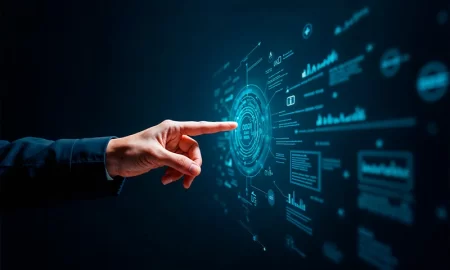HR Leadership in the Age of AI
AI technology is fast-forwarding every industry, but HR leadership is perhaps most uneqivocally impacted. AI tools are changing the business dynamics of recruiting, engagement, and workforce retention. For HR leaders, the question is how to stay one step ahead. The balance between artificial intelligence and human touch as a counterbalance may hold the solution.
AI Demystified in HR
The HR world is experiencing disruption by AI through the automation of monotonous back-end tasks, resulting in data-driven decision-making and considered employee experience. In light of technological advancement, all-time-consuming processes are now being fast-tracked: AI recruitment scanning resumes in seconds; chatbots responding to employee inquiries. AI is cool because it enhances the ability of human resources rather than takes the place of HR professionals.
Fostering an AI-Brained Culture
For the effective leadership in an AI-centric world, there should be a greater degree of acceptance for learning and growth among HR professionals. The fast-paced evolution of AI requires HR to appraise both new applications and techniques to sustain resilience. A program on upskilling and reskilling in data analytics of human behavior, AI ethics, and digital transformation would help HR leaders to undergo quick decisions in favor of business growth.
A Human Touch in the Era of Automation
While AI can be deployed to perform repetitive tasks, HR is all about people. This means the balancing act of leveraging AI to create efficiency and elevating human connection. Employees still need personalized career development, empathy-driven leadership, and authentic engagement, none of which can be fully delivered through AI.
AI Enhancing Employee Experience
Smart HR leaders prefer using AI as an enhancement to the employee experience, not a replacement. AI predictive analytics identify risks of employee burnout, allowing HR to conduct proactive interventions. Bots can handle repetitive queries that the HR team receives, allowing them more time to focus on valuable interactions with employees.
The Ethical Employment of AI in HR
AI HR tools should be used responsibly. Biases in AI algorithms can lead to discrimination, so HR leaders should align with IT teams to enforce fairness and transparency. Regular audits on the AI system maintain ethically sound practices in HR and grow the trust of people in the organization.
We Are Using AI for a Smarter Way of Talent Acquisition
Recruitment is the area most impacted by AI. AI-enabled applicant tracking systems (ATS) scan resumes for relevant skills, which speeds up hiring. However, HR heads must ensure that their approach does not end up being so AI-driven that it overrides diversity. The human aspect of hiring remains pertinent.
Data-Driven Decision-Making for Human Resource Management
Fulfilling this role, AI assists HR teams by getting insights into workforce concerns and enabling its managers to make data-based decisions. Employee sentiment analysis, as well as predicting turnover and performance, are bolstered by AI. Using AI-driven analytics, HR leaders will be able to undertake strategic workforce planning and improve overall employee satisfaction.
Tackling the Switching Workforce Due to AI
HR leaders, then, will have to assist employees in adapting to the radically changing technologies set in motion by AI. The continuing upskilling and retraining programs will ensure that employees remain in touch with changes in an increasingly automated world. The corporate human resources section will have to lead the reshaping of the learning culture.
Future-Proofing the HR Leadership
To just be steps ahead, AI champions for HR leaders in their respective organizations would be the best job description. Advocating AI use, protecting the positive aspect of AI on people, and placing the welfare of people above all else will mark the success of HR leadership in a technology-dominated world. The future of HR is not just AI; rather, it is about how leaders can work with AI to create a far more dynamic, inclusive, and innovative workplace.
Conclusion
AI is not replacing HR leadership; it is transforming it. HR leaders who adopt AI but arepeople-focused will thrive into a new age. HR professionals can confidently and fully lead their organizations by staying updated, ensuring ethical AI practices, and encouraging continuous learning. The HR future is AI-enhanced and human-led.












